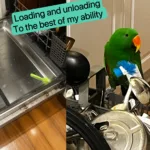The rat race starts young now! And it’s easy to get caught up in it. As a parent of college-bound teens, I live the frenzy that often results from students (and parents) thinking that the rest of their lives are dictated by their college acceptance letters. High-achieving teens aim, at the very minimum, to maintain GPAs above 4.0, aim for spectacular SAT scores, and outshine each other in extracurricular endeavors. When you see everyone else going above and beyond, it’s easy to spread yourself too thin and out of balance. But there is life beyond college admission and lots of other important choices to be made. (As a reminder: your life will probably be fine even if you don’t get into your top choice colleges.)
How much time do you spend evaluating which person you should befriend, date, or marry? Our choices in people are more important than students’ school choices! On the heels of women’s Day, I challenge us to notice the difference in efforts we spend on college counseling, career development to social-emotional skill building, and spend some more time discussing relationship health and boundary setting with our teens, especially young women. They grew up watching Disney movies, reading fairy tales about Prince Charming, or witnessing dysfunctional marriages. It’s often difficult to discern who is actually good for you. Strong social emotional skills like self-awareness, conflict resolution, and impulse control are important preventative measures to avoid trauma. More importantly, we need to start having these important conversations early and often and parent our kids beyond their GPAs.
The path to adulthood is littered with potholes. The average age of children joining gangs is 13. Twelve million Americans are victims of rape, physical violence or stalking by a romantic partner every year, and 1 in 3 women will experience such abuse in their lifetime (1 in 4 for males.) The #1 cause of death in pregnant women and mothers who recently delivered is homicide by their spouse or partner.
People danger starts younger than we expect. 33% of teens experience dating violence but won’t tell anyone–perhaps related to the fact that 81% of parents believe teen dating violence isn’t an issue. 61% of teen sexting go coerced into it. The elderly and disabled are 70% more likely to be abused.
What do these statistics mean to you? To me, they tell me that the problem is prevalent and there aren’t enough effective proactive measures taken to prevent these traumas. Prioritizing behavioral health by building social emotional skills is essential because abusers are often charming People danger is not as easy to recognize. Some abuse leaves bruises and scars. But the abuses that don’t manifest outwardly are just as destructive, if not more. In fact, emotional abuse triggers PTSD symptoms in women more than physical abuse. Trauma physically changes the brain and affects learning, emotional regulation, memory, and every part of people’s lives.
Some lessons are important enough for us to repeat to ensure mastery. We hold on to children’s hands for years, teaching them how to watch the lights and check for cars because the consequences can be deadly. Don’t let go of your hands yet! Crossing into adulthood, choosing partners, and watching out for toxic relationships require just as much attention as we are paying to academic or career achievements.
Everyone needs a strong dose of social emotional skills to carry you far. And you’re going to need those skills to be second nature to count on them in times of trouble. Our team works to cultivate a solid sense of self and personal boundaries so that people know what they are comfortable with, and practice asserting their boundaries with others. We help people invest time in relationships where there is mutual respect, understanding, and clear communication. Whether or not people danger is real, a lot can be gained by surrounding yourself with people who will support and bring the best out of you. These relationships form the support team that can carry you through challenging times.
If you’re currently in an abusive relationship, do not hesitate to seek professional support or call 800-799-7233.





Leave a Reply